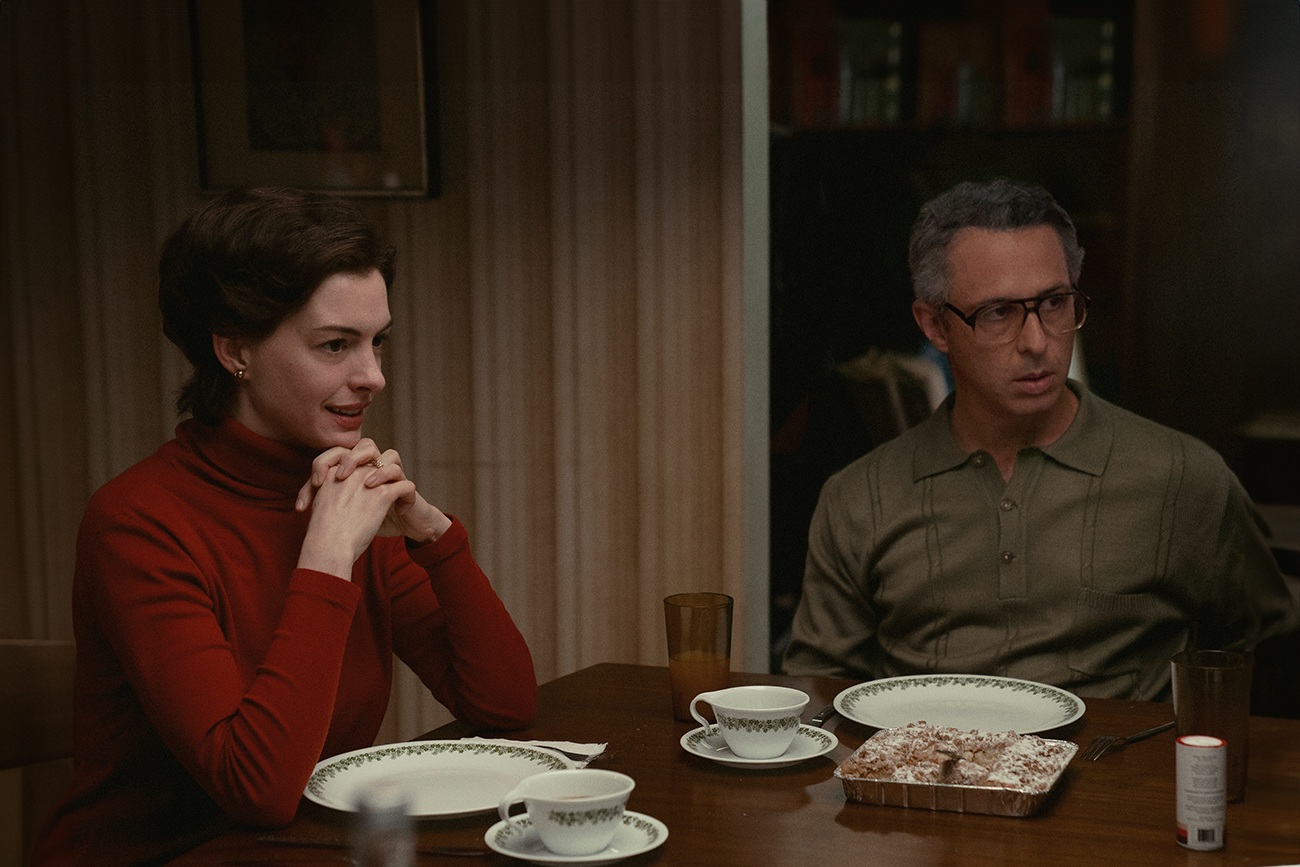Filmed during the COVID-19 pandemic, “Armageddon Time” is the first James Gray production to be recorded in digital format. The decision was driven by budget constraints resulting from the global health crisis, making digital photography a more financially viable alternative. However, cinematographer Darius Khondji was able to achieve the 1970s lens that Gray wanted, while maintaining the authentic visual style and nostalgia of the era the film depicts. The film's title refers to the song “Armagideon Time” by The Clash, which reflects the atmosphere of tension and change that prevailed in that period.
The narrative takes place in the early 1980s, at a crucial moment in the presidential election in the United States. The political context of Ronald Reagan's rise, with his rhetoric about renewing the American dream and Cold War concerns, serves as the backdrop to the story of Paul Graff (Repeta Banks). Paul is a boy from a middle-class Jewish family who lives in New York and studies in a public school in his neighborhood. Although he is surrounded by a stable and loving family structure, he experiences a rebellious phase, constantly seeking the attention of classmates and teachers and getting into trouble at school.
Paul forms a close friendship with Johnny Davis (Jaylen Webb), an African-American colleague who lives in a state of extreme social vulnerability. Johnny lives with his grandmother, who, due to her poor health, is at risk of being transferred to a retirement home. Johnny's perspective, unlike Paul's, reflects a world full of doubts and barriers. At any time, Johnny could be placed in foster care. Paul's attitudes, while also transgressive, seem to be viewed in a more lenient light given the familial context and the status of his mother, Esther (Anne Hathaway), who holds a prominent position in the local parents' association. Johnny, on the other hand, feels the constant weight of surveillance by the authorities, and often takes responsibility even for situations he did not cause.
When Paul transfers to an elite high school, partly due to the antics he committed in public school, he quickly realizes how different this new environment is from his old school. Surrounded by mostly white students and instructed to follow a strict code of conduct and discipline, Paul experiences the privilege his family can provide him, even as he himself feels out of place amid conservatism and a lack of racial diversity. The immediate acceptance of his colleagues reinforces his social privilege and places him in a position that is difficult for Johnny to reach.
The situation takes an unexpected turn with the death of Paul's grandfather, Aaron Rabinovich (Anthony Hopkins), a central figure in the boy's life. Not only was Aaron a loving mentor, he also taught his grandson the core values of compassion and fairness. His death destabilizes the family dynamic. Esther, the mother, enters a process of emotional isolation and depression, while the father, Irving (Jeremy Strong), with a stricter and more disciplining attitude, takes on a more present role in Paul's life. Feeling emotionally fragile and without clear guidance about what is right and wrong, Paul begins to question the direction of his life and the lessons his grandfather left behind.
Amid the pain of losing Aaron, Paul and Johnny share their dreams of a future far from the reality in which they live. Paul has an artistic soul and represents the potential to be a painter, while Johnny harbors the desire to become a NASA astronaut. Inspired by these dreams, the two come up with a plan to escape together to Orlando, hoping to find a place there where their aspirations can be fulfilled without the restrictions and judgments they face in New York.
“The Time of Armageddon” not only tells the story of an unlikely friendship between two boys from different backgrounds, but also illustrates the deep social and racial inequalities that directly impact the opportunities and choices available to each person. While Paul appears to have a secure and promising future, with access to a support network and privileges that help him overcome his shortcomings, Johnny faces an uncertain fate and a society that seems to have already decided his role. The contrast between these destinies reveals the harsh reality of a society in which the circumstances of birth determine the possibilities and obstacles along the way.
James Gray, by setting his story in a period of great tension and change in the United States, provokes reflection on social divisions and the impact of family structure and environment on children's futures. Based on Paul's experience, the film deals with the awakening of a social conscience, encouraged by his grandfather's words, but still confused and shaped by the reality of privilege that surrounds him. Paul's relationship with Johnny becomes a starting point for discussing the importance of empathy and the need to acknowledge and combat social injustice, which often persists across generations.
The Time of Armageddon offers a critique of the promise of the American Dream, revealing how it has become out of reach for many due to deep social and racial inequalities. Paul and Johnny's story thus becomes a reminder that although the individual path is unique, the social context in which a person grows up can limit or open doors, determining what is possible and what is rejected.
film: Armageddon time
direction: James Gray
year: 2022
sex: Drama/Biography
Notes: 9

“Infuriatingly humble analyst. Bacon maven. Proud food specialist. Certified reader. Avid writer. Zombie advocate. Incurable problem solver.”

